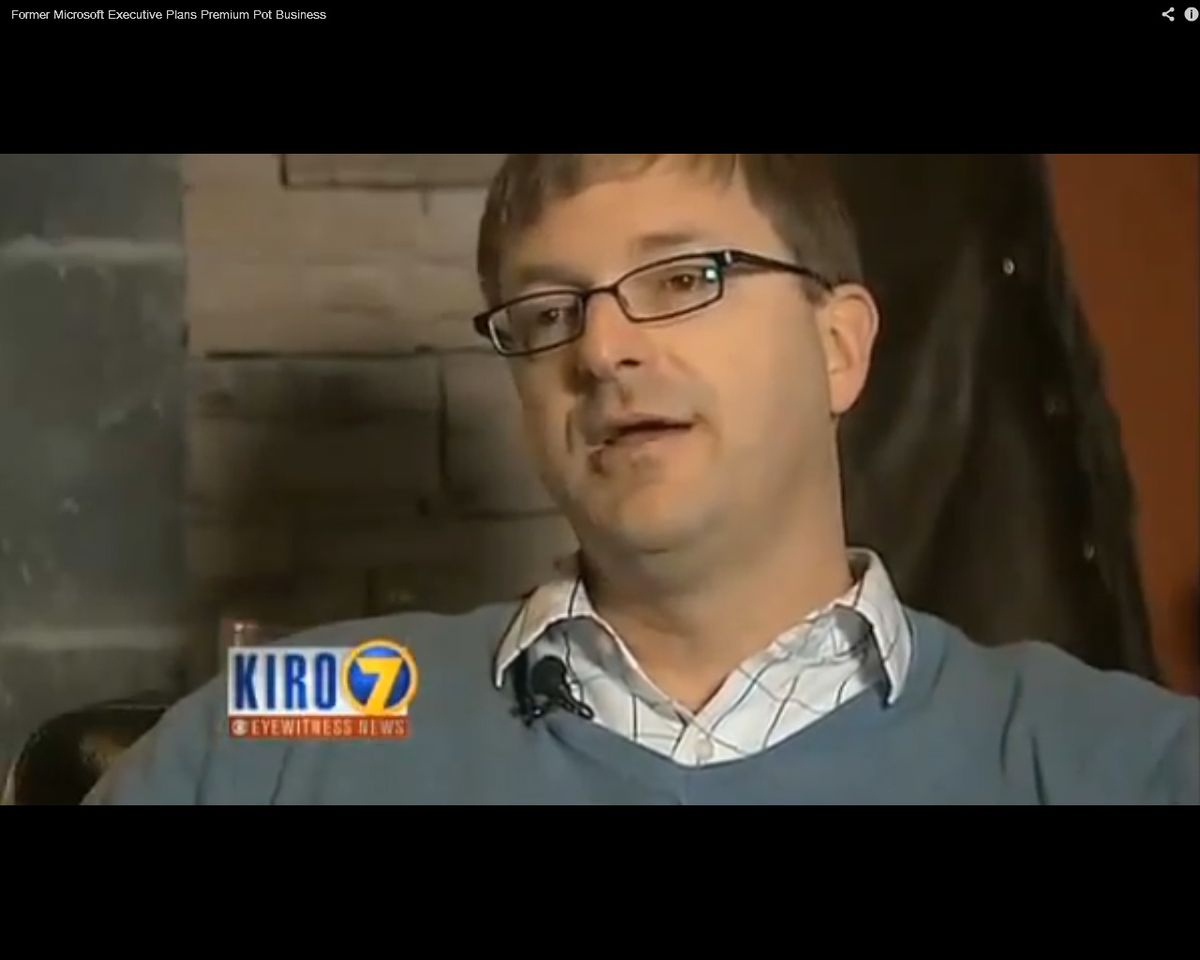Does Pot Need a Corporate Brand?

Coffee has Starbucks, soft drinks have Coca-Cola, burgers have McDonald's — but what brand identity does marijuana have?
With names like "Lemon Kush," "Bubblelicious," "Spermblaster" and "Hairy Mary," buyers of recreational and medical marijuana have only a hazy idea of what they're actually getting.
Leave it to a middle-age, bespectacled former Microsoft executive to come up with a marijuana brand that will have the same kind of consistency and consumer identity now enjoyed by other corporate products. [The Old Drug Talk: 7 New Tips for Today's Parents]
Jamen Shively, 45, had never smoked marijuana until about 18 months ago, according to the Seattle Times. "I've just fallen in love with the plant," Shively said. "Especially in the medical realm, I've gone from entrepreneur to advocate to activist, seriously."
Shively is now looking for investors to raise $10 million in startup money to purchase dispensaries in the 18 states (plus Washington, D.C.) where medical marijuana is currently legal.
"Let's go big or go home," Shively told the Times. "We're going to mint more millionaires than Microsoft with this business."
He's succeeded in attracting at least one big name to his venture: Vicente Fox, former president of Mexico and advocate of decriminalizing marijuana.
Sign up for the Live Science daily newsletter now
Get the world’s most fascinating discoveries delivered straight to your inbox.
"What a difference it makes to have Jamen here sitting at my side instead of Chapo Guzman," Fox told Reuters, referring to the notorious Mexican drug kingpin, at a recent press conference. "This is the story that has begun to be written here."
A family business
Shively has developed a premium brand of pot named after Shively's great-grandfather Diego Pellicer. Pellicer was the world's largest grower of hemp during the late 1800s, according to the venture's website.
"I've got marijuana in my blood, so to speak" Shively told KIROTV.com.
Of course, Shively faces more than a few hurdles to jump before becoming the Bill Gates of pot. The federal government maintains the use, sale and possession of marijuana is illegal in the United States.
"Having a national chain of marijuana-based companies is not only explicitly counter to the existing prohibition, but also counter to the government's expressed concern about [the pot] business growing too large," Alison Holcomb, primary author of Washington state's legal-marijuana law, told Reuters.
Even in Colorado and Washington — the two states that have legalized the recreational use of marijuana in defiance of the federal ban — there are a raft of regulations making it difficult to establish a chain of marijuana shops.
A multibillion-dollar trade
Shively remains undeterred, however, saying federal and state prohibitions are crumbling like the Berlin Wall, with fewer defenders every day, the Times reports.
He approaches the opportunities in marijuana retailing with the fervor of the newly converted. "I tried it and I absolutely loved it. It's like I was having the most amazing creative brainstorms," said Shively, as quoted in the Daily Mail.
"I was seeing life and situations and possibilities in just a whole new light. It was like living in a whole new dimension," he said. "So I sort of became an amateur evangelist of cannabis."
Shively also refuses to be cowed by the threat of federal prosecution, invoking the "Star Wars" character Obi-Wan Kenobi: "Darth, if you strike me down, I will become more powerful than you can possibly imagine," he told the Times.
Shively may be onto something: The United Nations released a report in 2005 estimating the global marijuana trade at $142 billion, Reuters reports.
Follow Marc Lallanilla on Twitter and Google+. Follow us @livescience, Facebook & Google+. Original article on LiveScience.com.













